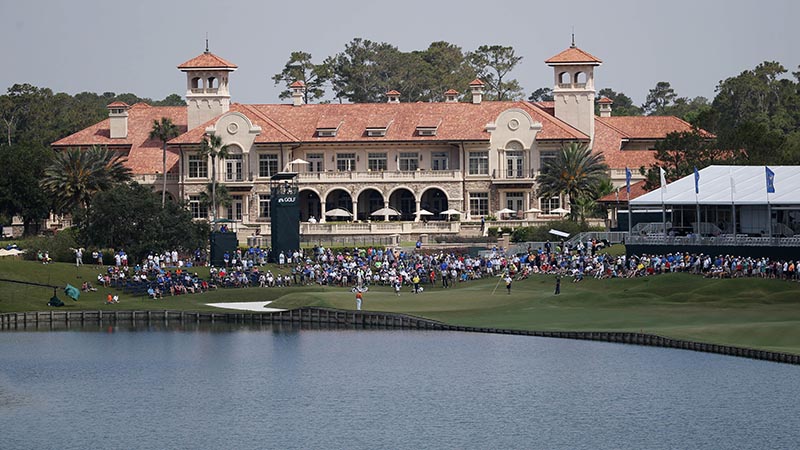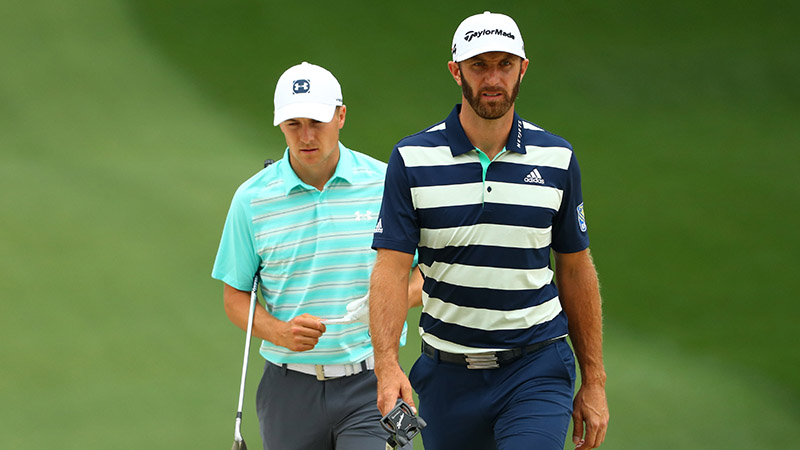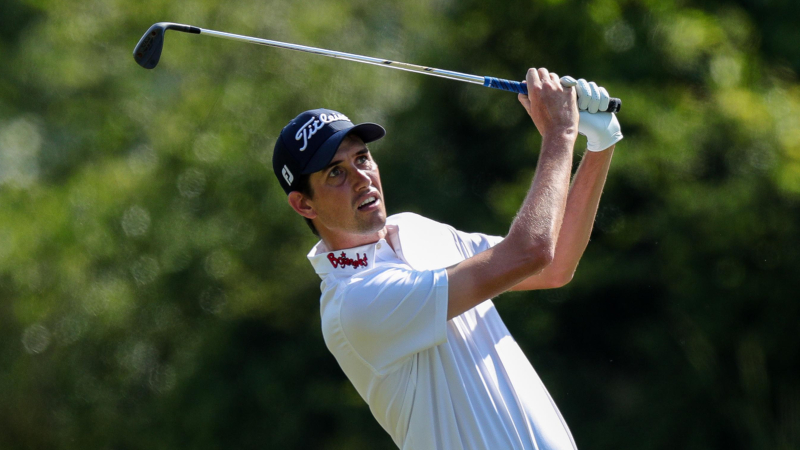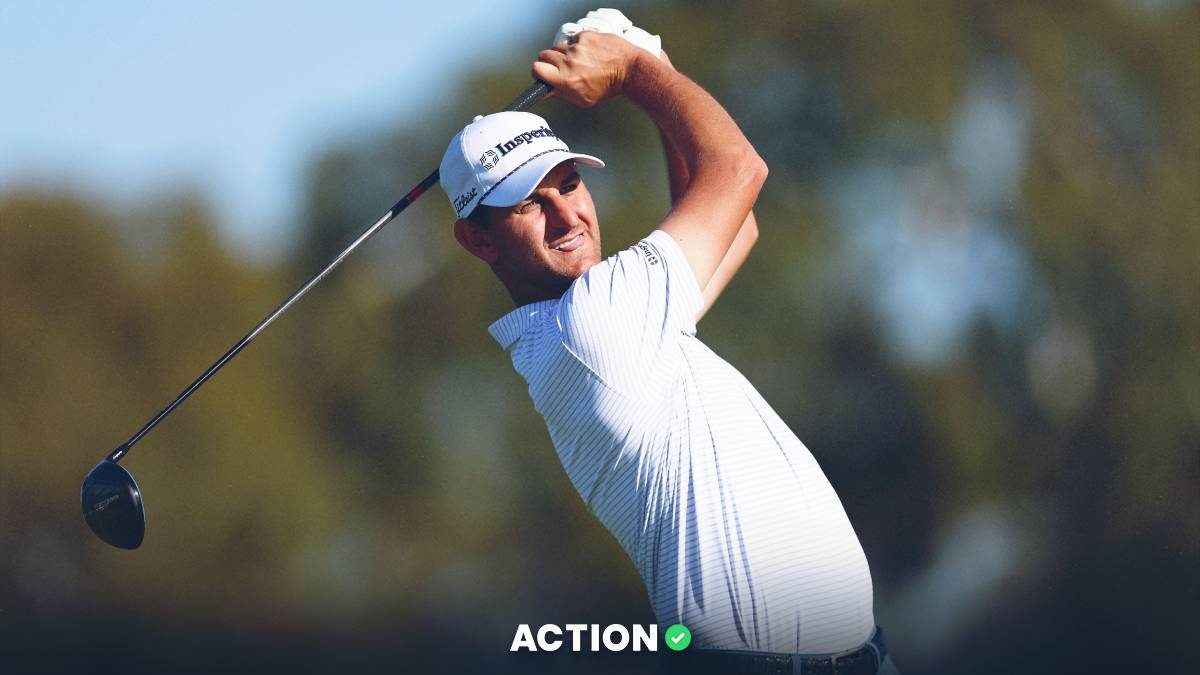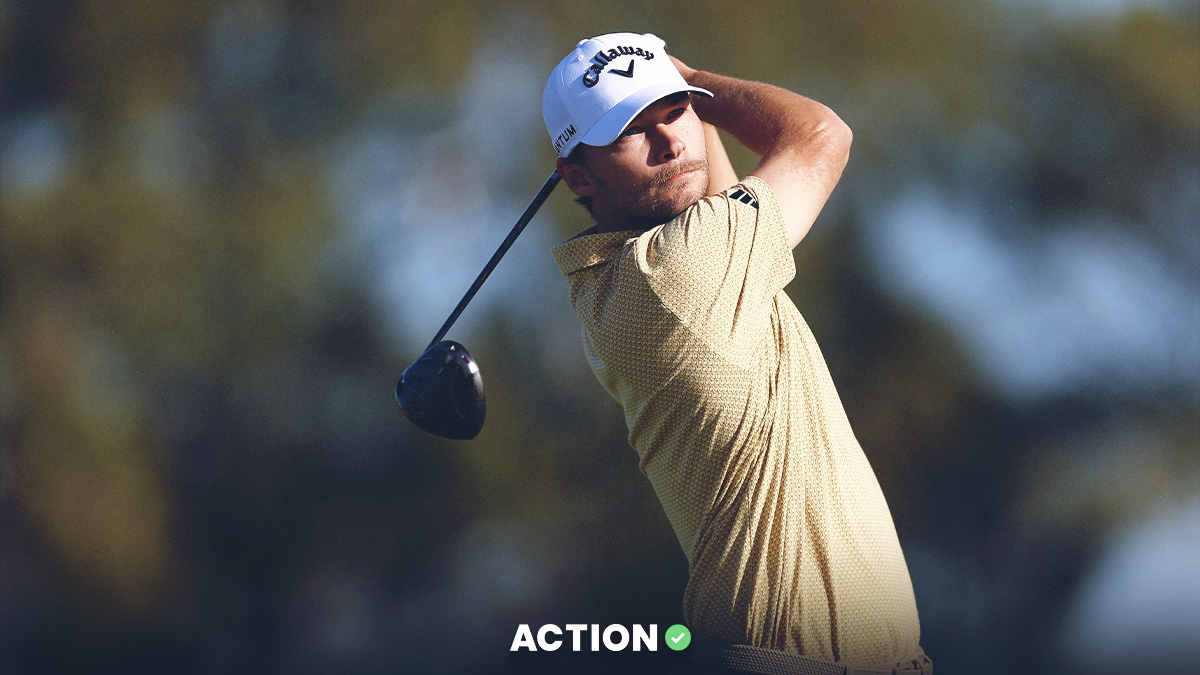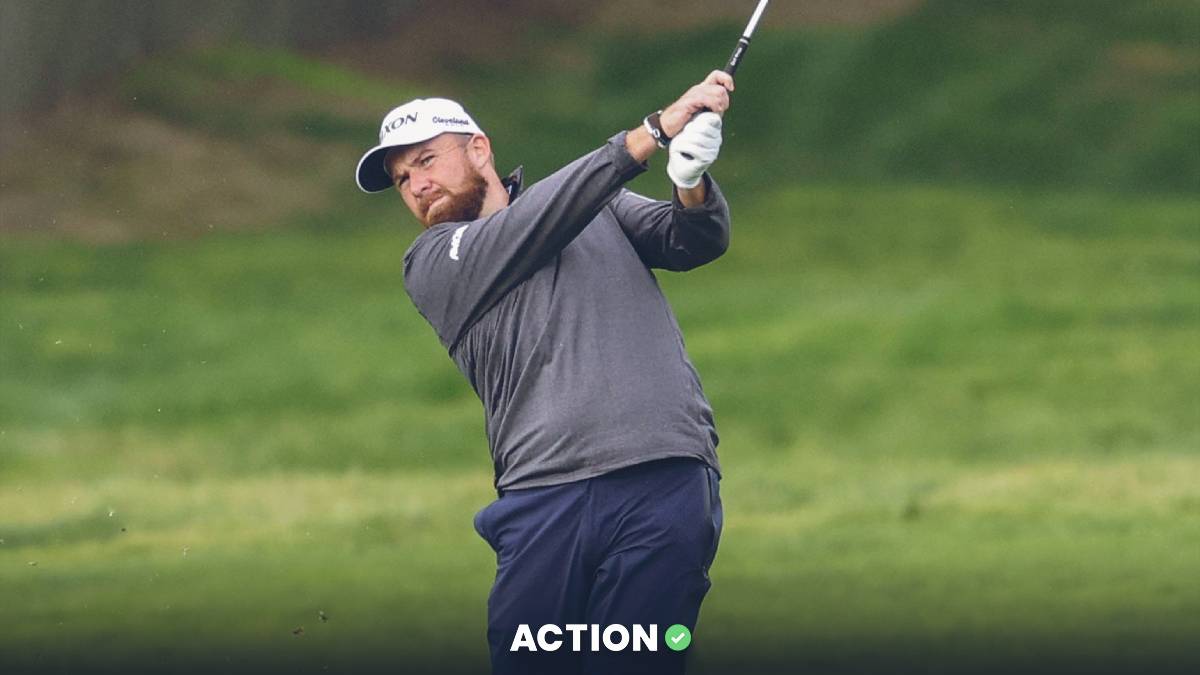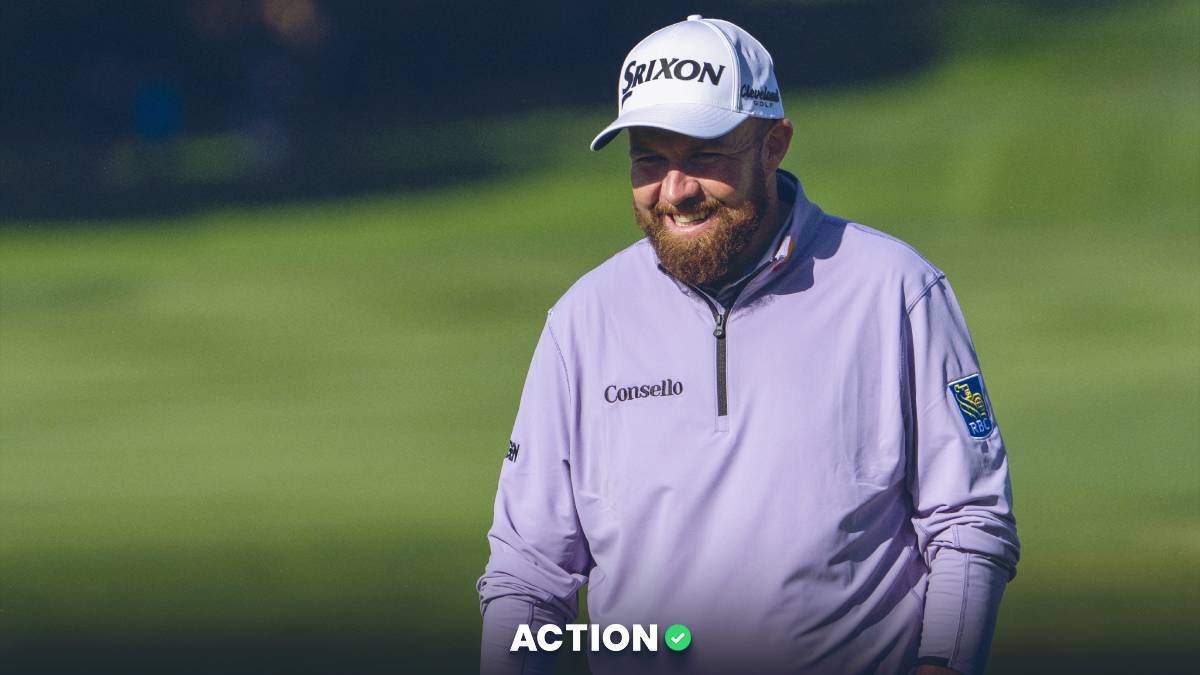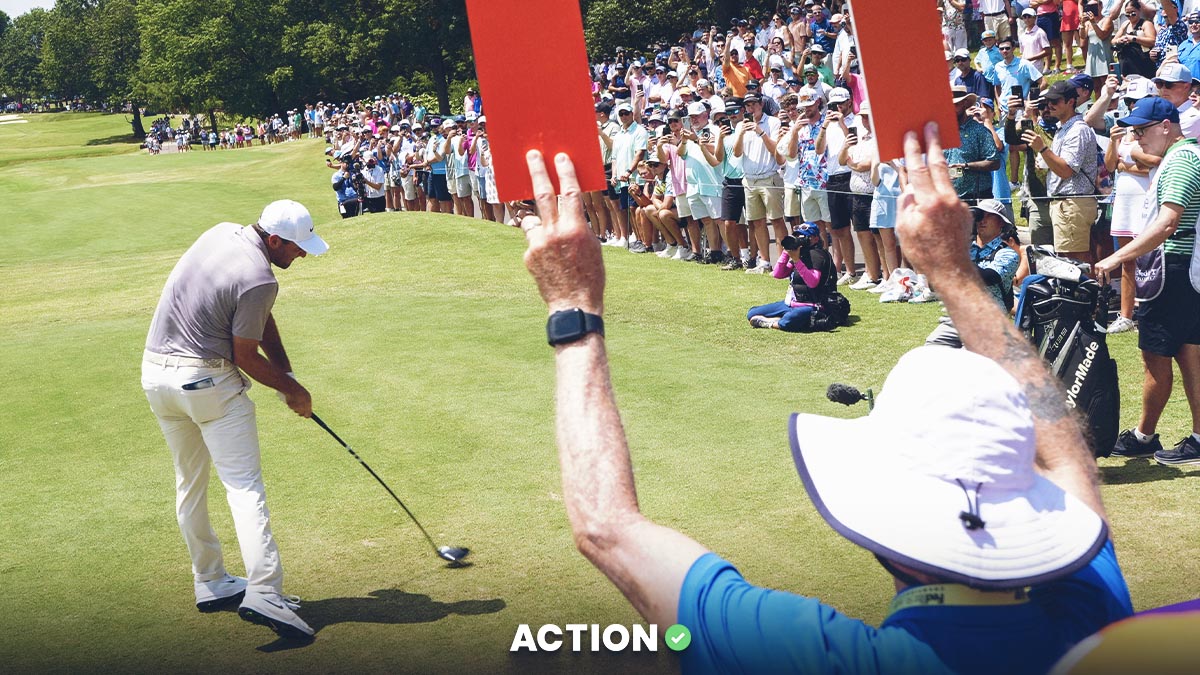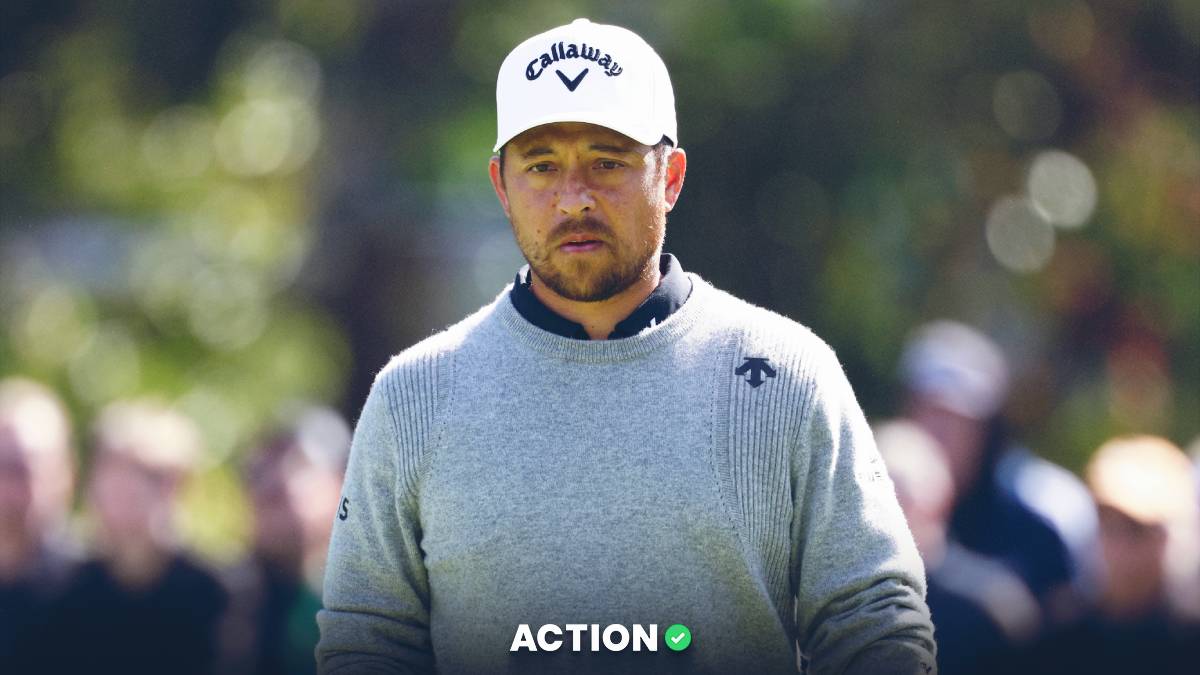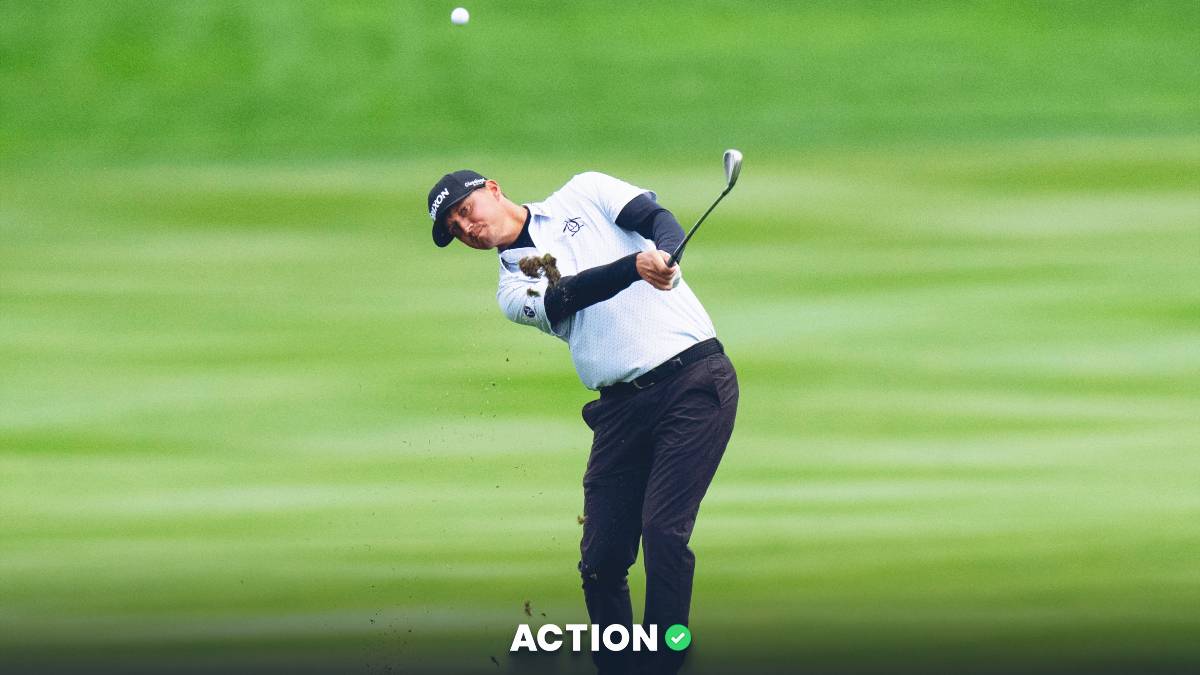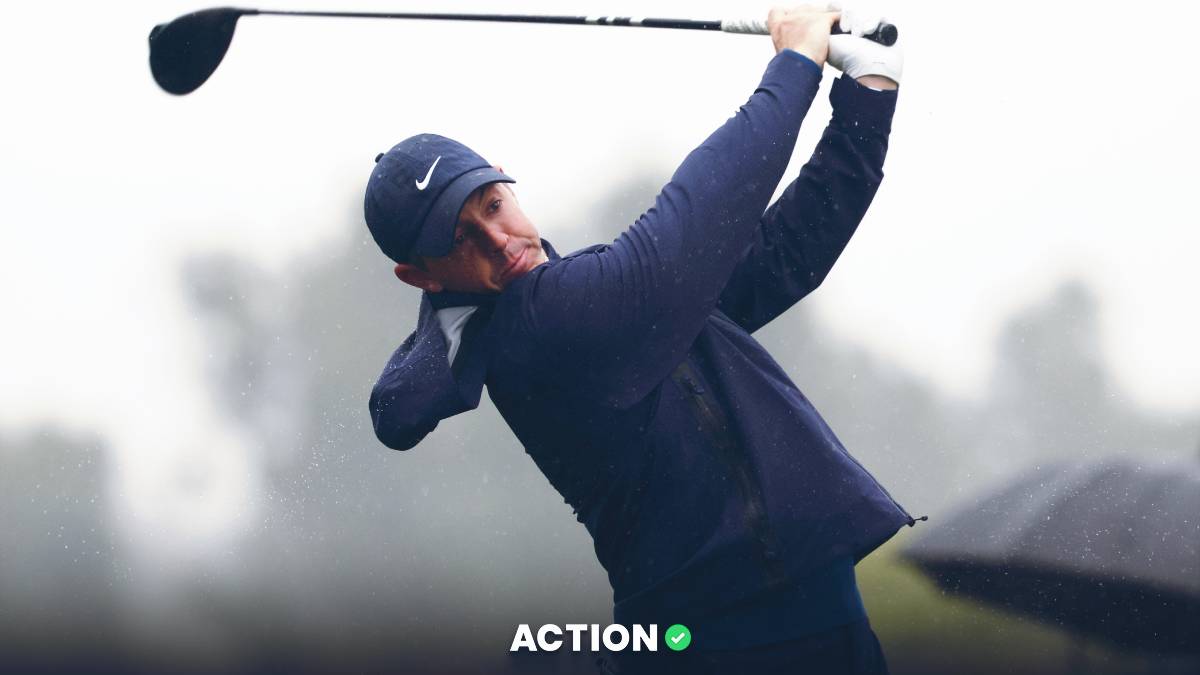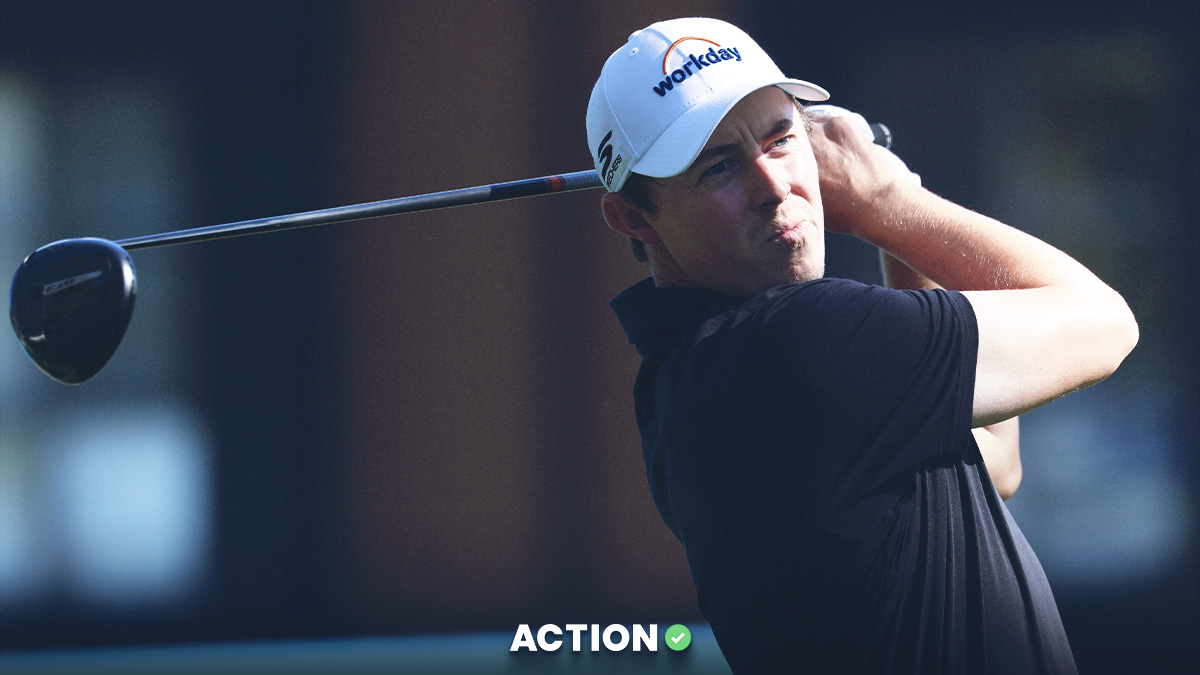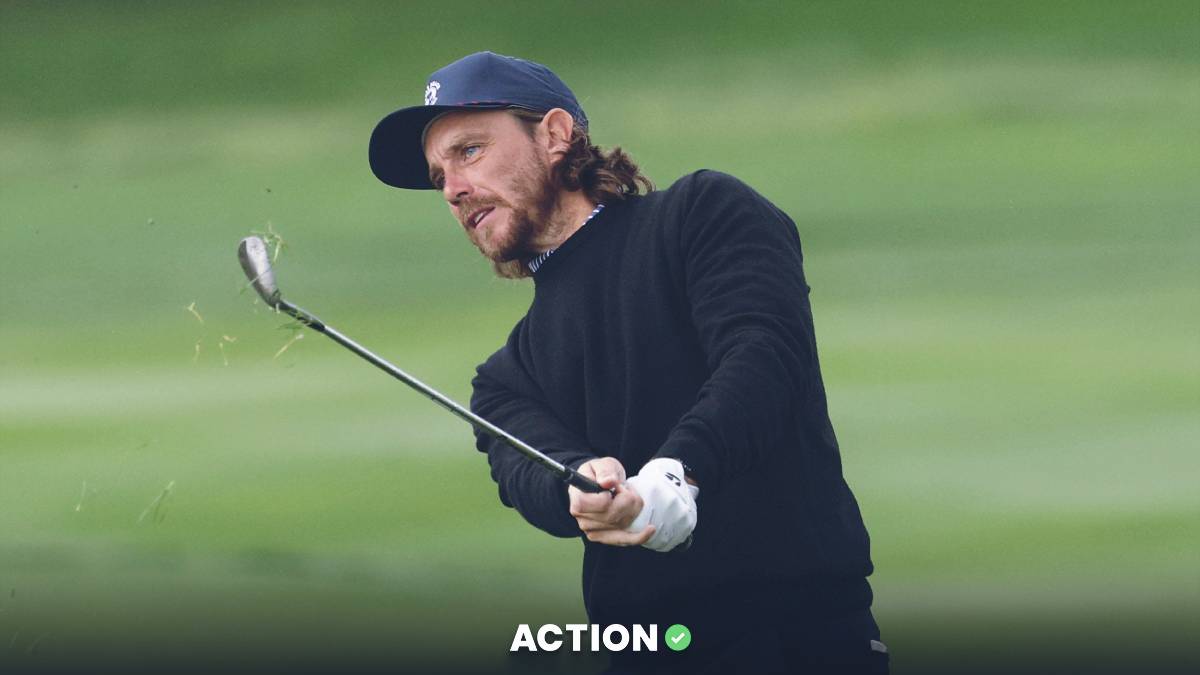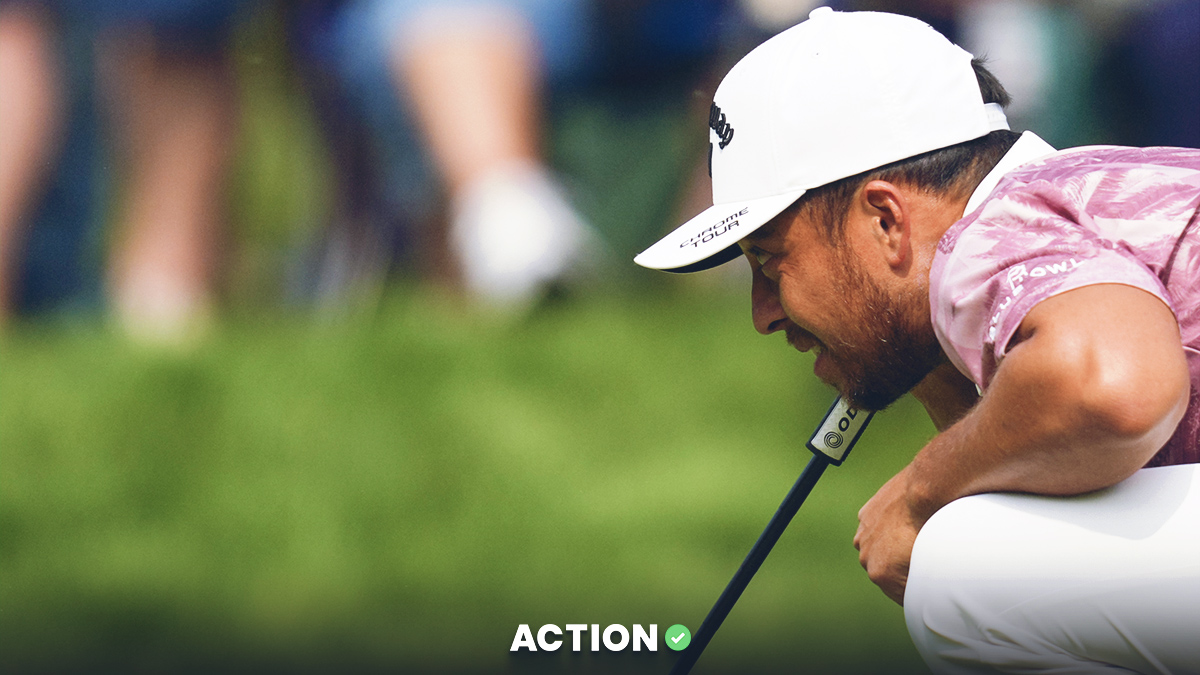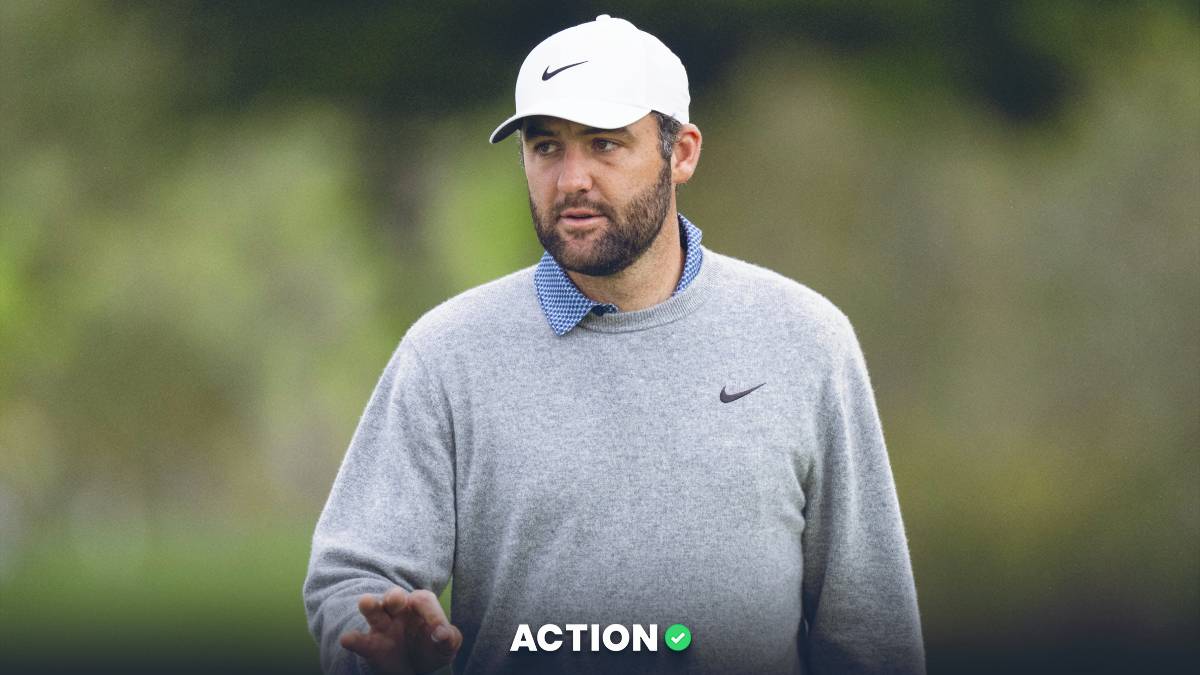The Highlights
- PGA Tour execs Andy Levinson and David Miller sat down with The Action Network to discuss the Tour's gambling stance in more detail.
- Levinson: "If you get to a point where you’re using official league data — in our case, that’s ShotLink data — to develop betting markets, to settle bets, you’re going to be able to have a much broader spectrum of betting products."
PONTE VEDRA BEACH, Fla. — In a recent USA Today interview, PGA Tour commissioner Jay Monahan outlined his public support for legalized and regulated sports gambling, briefly detailing how this could open competitive events to a broader audience and provide greater opportunities for the PGA Tour itself.
He wasn’t simply paying lip service to the idea.
On Tuesday, in advance of this week’s Players Championship, held at the PGA Tour’s headquarters, The Action Network sat down with Andy Levinson, senior vice president for tournament administration, and David Miller, vice president and assistant general counsel, each of whom has been working nonstop on exploring those potential opportunities.
“We pretty much talk about this all day, every day,” Levinson explained.
In a wide-ranging interview, Levinson and Miller discuss the PGA Tour’s preference for federal regulation, how it might affect the current integrity program for players and the potential future of sports betting for fans.
Q: Last month, Commissioner Monahan stated that the PGA Tour would welcome legalized and regulated sports gambling, explaining that it could provide more opportunities for the Tour. What are some of these opportunities?
Levinson: Well, first and foremost, it’s the opportunity to engage with a fanbase that we currently don’t reach and also engage our own existing fans in a totally different way. Whether that’s through our media platforms or watching our broadcast, gaming presents a different opportunity to reach those people that we haven’t had in the past. That is certainly our primary motivation.
Q: Granted, this is hypothetical, but are there any quantifiable numbers that can tell you what sort of reach this will have if and when it happens?
Levinson: It’s hard to say right now, because if you look at the current regulated sports betting market, internationally, the product is pretty basic. It’s win bets; if you’re talking about in-play betting, it’s really just a two-ball or three-ball bet where you’re betting on Rory, Jason or Justin having the better score that day. That’s really it. But if you get to a point where you’re using official league data — in our case, that’s ShotLink data — to develop betting markets, to settle bets, you’re going to be able to have a much broader spectrum of betting products. So it’s really hard to quantify what that is right now, because we don’t license that data currently. But if we were to go down that path, the opportunity could be significant.
Q: We’re currently awaiting the Supreme Court decision. If the federal ban is overturned, what would be the PGA Tour’s immediate reaction and what would be the first course of action?
Miller: We would prefer a federal solution. We’ve been on the record, like the NBA, we prefer a federal framework to be in place. We don’t think, right now, that Congress has much interest or appetite in sports betting regulation. Now, we’d love for that to change, but this year, we’re realistic. So we’ve already started engaging at the state level with the NBA and Major League Baseball. We’ll continue to do that. But we would certainly consider our options at the federal level, as well, because from a consistency standpoint, as a national business, we would certainly prefer a federal approach.
Q: Do you find that your stance is in line with those from the NBA and Major League Baseball?
Miller: I do. We’ve been working with them for about two months. A big part of the reason we joined their effort is because we are aligned. We started talking with them at the end of last year, after the Supreme Court oral argument. Just based on the tenor of that argument, we realized that there’s a decent chance here that New Jersey wins this case and sports betting is opened up at a broad level here very soon.
Levinson: I would just add that since April 1, since we got publicly engaged in this effort, David and I have both been traveling with the NBA and MLB to state capitals and meeting with legislators. If the Court’s decision goes in the way that David suggested it may go and New Jersey wins this case, there will be even more motivation at the state level to get something passed before their legislative sessions close. Some of those are already closed; some are closing very soon. If the decision comes, we’re going to keep doing what we’ve been doing, which is out on the road, going to state capitals, but we’ll probably be doing it at an even more frenetic pace than we currently are.
Q: Can you outline the current regulations on gambling for PGA Tour members? And how would this change if the law changes?
Levinson: I’ll answer the second part first: Our integrity program wouldn’t change — and the reason it wouldn’t change is because we spent a great deal of time preparing an integrity program that is intended to protect the integrity of our competitions and our athletes in the face of an already substantial existing international market. Just adding a legal market in the United States wouldn’t change the rules and regulations that are in place. The rules that are in place list a number of items of prohibited conduct. That includes betting on professional golf and even elite amateur golf; it includes association with people betting on golf; it includes soliciting that type of activity; and even providing inside information about golf, and that could range anywhere from specific tournament information to what a player’s injury might be.
Q: It seems like there might be some blurred lines here. If a player discusses an injury in an interview session before a tournament, does that cross the line into inside information?
Levinson: Inside information, as you said, is gray. There’s a blurred line. Certainly the media are not subject to our integrity program, because that would really put you guys in a tough position. You wouldn’t be able to ask the questions you want to ask — or at least you’d have to think twice about it. In other sports, athletes are discussing their physical condition openly with the media. So that’s a little difficult. But we’re monitoring all the betting activity on our competition. We use a company based in the United Kingdom called Genius Sports. If there is an anomaly in betting activity around a particular athlete who we know had a conversation related to their physical condition, then we would investigate that further. It would be a piece of evidence, rather than a violation itself.
Q: How much do you need to educate players on the legality of sports betting? How does the integrity program change if and when this becomes legal? And is there a concern about the integrity inside the ropes?
Levinson: We’re not naïve enough to think we’re not susceptible to corruption at some level. At the same time, integrity is fundamental to our sport. When we started the integrity program, we rolled out an online education module that every single member on all six of our tours has to take. On the PGA Tour, we’ve already had 100% compliance with that. If the Court rules in the way that we think it will, we’re going to further educate our players. We need to ensure that our players know what to look for.
Miller:We actually think that a regulated market will help improve integrity in competition. That’s a big part of the reason we came out and supported regulation. Right now, it’s generally a massive black market in the U.S. From what I’ve seen, there’s about $150 billion to $200 billion bet in the U.S. annually and only 3% of it is legal. So for us, through regulation, we expect to get more visibility into the betting markets. There are requirements that licensed operators share any suspicious activity with the leagues, share user information with the leagues, give the leagues the ability to opt out of bets that are susceptive to match fixing. So we’d certainly educate our players as this world evolves if betting is legalized in the U.S. further, beyond just Nevada and the three other states. But we ultimately see regulation as a good thing for ensuring integrity.
Q: I want you guys to look into your crystal balls. Can you envision a time, when gambling is legalized and regulated, that PGA Tour venues could have betting kiosks for fans? Maybe current odds next to players’ names on the scoreboards?
Levinson: I could see a time, yes, when the activities of sports gambling are engaged in the way we present our sport. Maybe not on site, at our venues, but certainly through our media platforms, through our broadcasts. I definitely see that as a possibility.
Miller: I would agree. As Commissioner Monahan has always said, for us, a big part of the attraction of gaming is the fan-engagement benefits. So exactly how and when we execute on that and pursue the fan-engagement opportunities, we’ll see. But I do foresee sports betting being opened up in the U.S., and we are interested in exploring opportunities. We want to engage our fans. Could kiosks happen? One day, potentially — as long as it’s legal and regulated and done responsibly. We don’t want betting being so widespread that it looks like we’re just running a betting business, because that’s certainly not our intent. But we can use a safe, regulated betting market to help attract fans and engage our fans.
Levinson: One of the things we’re asking of the states when we meet with them is the allowance of mobile betting. We feel like there is such a large black market currently in the United States with sports betting that if the states don’t allow a mobile and Internet platform, we’re not really going to make a dent in the black market. Down the road, if the states go that way, you think about the way fans are going to engage in betting, it’s going to be at the tournament while they’re on their mobile devices. Or from the couch while they’re watching the broadcast and watching the scores online. There are a lot of different ways that people are going to engage in it. We haven’t even broken the ice in that yet.
Q: It’s amazing that we’re only about two years removed from the PGA Tour telling fans that they really can’t have phones on the golf course to exploring an opportunity for betting on their phones at the course.
Levinson: It could be a really great tool to get people to engage in the sport, follow the players, stay with the competition throughout, from start to finish. Not just drop in and drop out, but really watch the whole broadcast every day.
Miller:And we do foresee a world where people are betting, shot by shot, on their phones. There’s a demand there. That product exists in other sports; it’s not there in golf, because the data isn’t available, but we do foresee that happening. If you look overseas, the trends toward in-play betting we see coming here. Golf is very attractive in that respect. Tennis has been doing this for a long time; they have point-by-point betting. I think there’s a lot of potential and opportunities in golf, as well. Our ShotLink system is an elaborate system with a lot of outputs, a lot of variables, and there could be a lot of betting markets created down the road. So we’re really analyzing it to prepare for the potential of in-play betting coming to golf.


